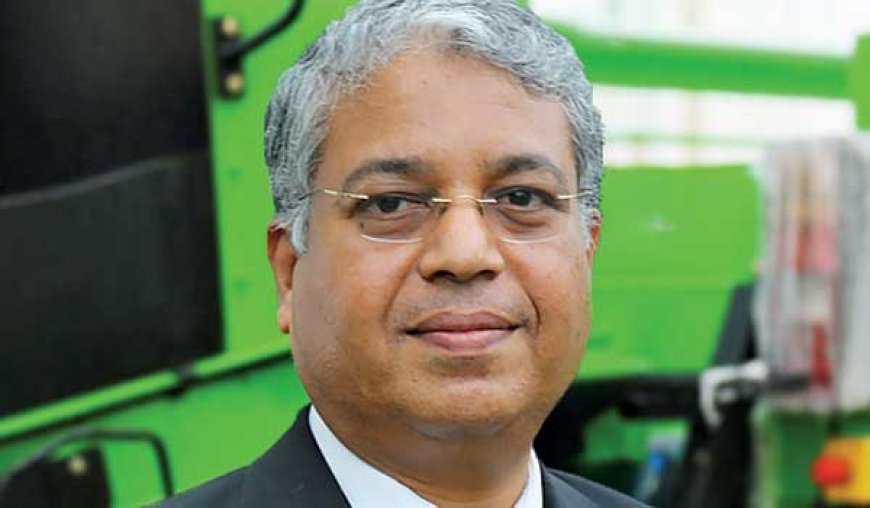Long-term benefits of sustainable equipment outweigh the upfront costs.
V G Sakthikumar, Managing Director, Schwing Stetter India What specific technologies or features do you incorporate into your sustainable construction equipment (e.g. electric or hybrid power, reduced emissions, recyclable materials)? SCHWING Stetter India has been heavily investing in rolling

What specific technologies or features do you incorporate into your sustainable construction equipment (e.g. electric or hybrid power, reduced emissions, recyclable materials)?
SCHWING Stetter India has been heavily investing in rolling out sustainable machinery to the CE industry. With the valiant efforts of our team, we were able to launch a Shotcrete machine that is electrically powered in the Bauma Conexpo that happened in January 2023.
How does the cost of sustainable construction equipment compare to traditional equipment, and what steps is your company taking to make sustainable equipment more affordable?
The cost of sustainable construction equipment is generally higher than traditional equipment, due to the higher initial investment in research and development, materials, and production. However, we believe that the long-term benefits of sustainable equipment outweigh the upfront costs, as they can save money on fuel, maintenance, and disposal.
How does your company ensure that the equipment is environmentally friendly throughout its entire lifecycle, from production to disposal?
Our company ensures that the equipment is environmentally friendly throughout its entire lifecycle by following the principles of circular economy. This means that we design the equipment to minimize waste and maximize resource efficiency, we use renewable and recyclable materials in production, we provide repair and maintenance services to extend the lifespan of the equipment, and we recycle or reuse the equipment at the end of its useful life.
How does your company measure the environmental impact of the equipment, and what metrics does it use to track sustainability?
Our company measures the environmental impact of the equipment by using various metrics, such as carbon footprint, energy consumption, water consumption, waste generation, and noise level. We use these metrics to monitor and evaluate the sustainability performance of our equipment and to identify areas for improvement. We also report these metrics to our stakeholders and customers to demonstrate our commitment to sustainability.
How does your company support the adoption of sustainable construction practices among its customers, and what resources or services do you provide to help them transition to sustainable equipment?
Our company supports the adoption of sustainable construction practices among our customers by providing them with training, guidance, and technical support on how to use and maintain the sustainable equipment. We also provide them with information and tools to measure and report the environmental benefits of using sustainable equipment. We also collaborate with other industry partners and organizations to promote sustainability standards and best practices in the construction sector.
What challenges has your company encountered in producing sustainable construction equipment, and how have you addressed them?
Some of the challenges that our company has encountered in producing sustainable construction equipment are lack of awareness and demand from customers, lack of regulation and incentives from governments, lack of availability and affordability of sustainable materials and technologies, and lack of skilled workers and expertise in sustainability. We have addressed these challenges by investing in innovation and research, educating and engaging our customers and stakeholders, advocating for policy change and market development, sourcing sustainable materials and technologies from reliable suppliers, and training and empowering our employees and partners.
What role do you believe sustainable construction equipment will play in the future of the construction industry, and how is your company preparing for this shift?
We believe that sustainable construction equipment will play a vital role in the future of the construction industry, as it can help reduce the environmental impact of construction activities and contribute to global goals such as climate change mitigation, resource conservation, and social inclusion. Our company is preparing for this shift by continuously improving our products and services, expanding our portfolio of sustainable solutions, and exploring new markets
Hits: 5








